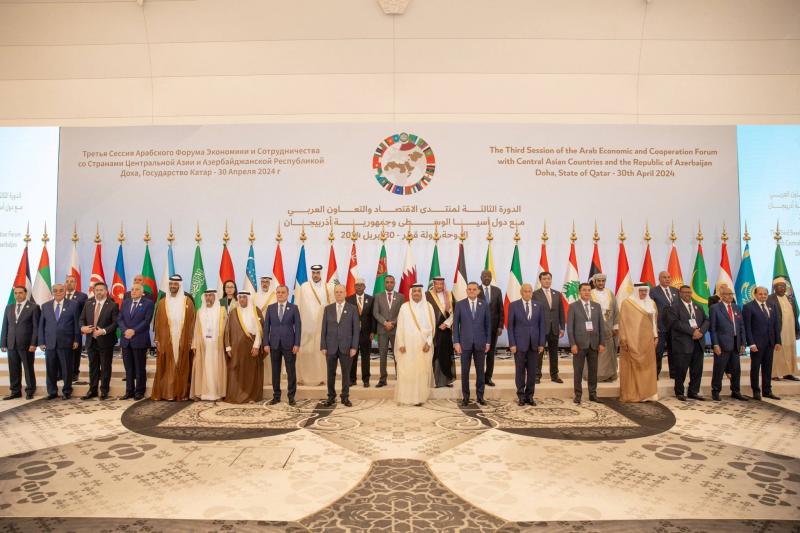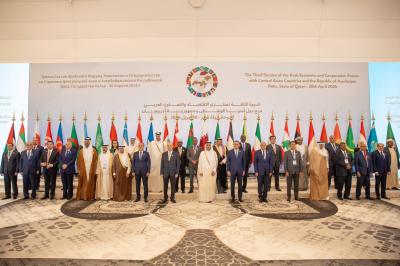The third session of the Arab Economic and Cooperation Forum with Central Asian countries and the Republic of Azerbaijan, chaired by the State of Qatar, opens new horizons for cooperation and partnership between Arab countries and Central Asia, as well as Azerbaijan. The inaugural speech by His Excellency Sheikh Mohammed bin Abdulrahman bin Jassim Al Thani, Prime Minister and Minister of Foreign Affairs, reflected the level of ambition and hopes pinned on this cooperation, as well as embodied Qatar's visionary approach and its commitment to enhancing regional and international cooperation for sustainable development and regional and global peace stability.
This vision and ambition were reiterated by the Prime Minister and Minister of Foreign Affairs when he expressed hope for consensus on a series of programs aimed at boosting trade exchanges and investments between the two regions, along with joint cooperation to ensure the sustainability of supply chains and connect transportation, transit, food, energy, and water security. There are also plans to implement joint investment projects, develop clean energy, promote the green economy, adopt smart agriculture, address environmental issues, and invest in tourism infrastructure, education, and health. The aim is to produce the Doha Declaration with actionable plans and programs that contribute to achieving international peace and security and sustainable development, benefiting our people with security, stability, and prosperity.
The most notable and important aspect of the forum is the significant message it conveys that the historical, cultural, and civilizational ties binding the Arab world with Central Asian countries and Azerbaijan represent a solid foundation for enhancing cooperation at various political, economic, social, cultural, and technological levels. Moreover, the unique historical circumstances under which the forum convenes play a fundamental role in shaping its outcomes, particularly in a phase where the Arab region and neighboring countries face numerous cross-border challenges and crises. This presents all of them with a historical responsibility to deepen mechanisms for consultation and cooperation to find peaceful solutions based on the principles of the United Nations Charter and international law. This will be evidenced in the Doha Declaration and the forum's recommendations, which are expected to differ from previous ones, reflecting the hopes, ambitions, and the reality in which the forum takes place.




